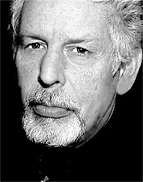 Richard Lourie
Richard LourieThree young men, all connected to Russia, have changed the world we live in. Dzhokhar Tsarnaev is a villainous figure, Edward Snowden ambiguous and Alexei Navalny plainly heroic. Still, they are all alike in their vital connection to the Internet and media and in the intensity of their belief that they can, and must, change the world.
Tsarnaev, along with his older brother Tamerlan, was in part radicalized by material from the Internet, and it was there that he found the instructions for making bombs from pressure cookers. Tsarnaev also discovered a new principle in the exploitation of the media by terrorism: hijack an already ongoing, media-saturated event like the Boston Marathon so that there is zero lag-time between the attack and the coverage.
That lesson has undoubtedly not been lost on Islamic extremists in the Caucasus in regard to the upcoming 2014 Winter Olympics in Sochi. To those extremists, Tsarnaev is no villain. They see him either as a hero or an innocent victim, framed by the U.S. government that actually planted the bombs — a conspiracy theory that is popular in the North Caucasus.
It may well be that in the future, U.S. politicians and pundits will be judged on the position they took on the Snowden affair just as they have been judged on their stance on the invasion of Iraq. If Snowden's revelations lead to advocates arguing against the government's gaining access to citizens' communication through the secret U.S. Foreign Intelligence Surveillance Court, that will be enough to outweigh any damage done so far to the United States' relation with its allies or China.
Snowden has rattled establishments around the world because he has demonstrated the power of the individual in a world dominated by the 1 percent of the rich and powerful. But he was supposed to be a member of that elite himself, a highly-paid young techy with privileged access to enormous amounts of sensitive information. The rabble rising up from below can be dealt with, but the insider who turns against the system presents grave problems because he knows how things work.
Snowden revived the image of the lone cowboy, and what he should fear most is another old tradition of the Wild West: the bounty hunter.
Navalny achieved prominence through the blogosphere where he exposed corruption, and the social media have been his chief means of organization and support. He was even texting his followers while the judge droned on with the preordained verdict.
Navalny is now Public Enemy No. 1 in President Vladimir Putin's Russia. The only question for the Kremlin now is the most effective way of neutralizing him. One can be sure that, in diplomatic parlance, all options are on the table, though the traditional Russian solution — prison — is chief among them. Maybe Putin can make a deal with U.S. President Barack Obama: We'll give you Snowden if you take Navalny, too.
Letting Navalny fail in the race for Moscow mayor then re-jailing him until after the next presidential race in 2018 would be a good solution for Putin but a bad one for Russia. It will complete the disaffection of the new middle class, some of whom will go abroad or at least send their children and money there. None of them will feel any further allegiance to Putin's Russia.
At the same time, however, there will be an even greater numbers of young men who possess that rarest and most dangerous of gifts: certainty. And there will be more Tsarnaevs and Snowdens among them than Navalnys.
Richard Lourie is the author of "The Autobiography of Joseph Stalin" and "Sakharov: A Biography."
A Message from The Moscow Times:
Dear readers,
We are facing unprecedented challenges. Russia's Prosecutor General's Office has designated The Moscow Times as an "undesirable" organization, criminalizing our work and putting our staff at risk of prosecution. This follows our earlier unjust labeling as a "foreign agent."
These actions are direct attempts to silence independent journalism in Russia. The authorities claim our work "discredits the decisions of the Russian leadership." We see things differently: we strive to provide accurate, unbiased reporting on Russia.
We, the journalists of The Moscow Times, refuse to be silenced. But to continue our work, we need your help.
Your support, no matter how small, makes a world of difference. If you can, please support us monthly starting from just $2. It's quick to set up, and every contribution makes a significant impact.
By supporting The Moscow Times, you're defending open, independent journalism in the face of repression. Thank you for standing with us.
Remind me later.





